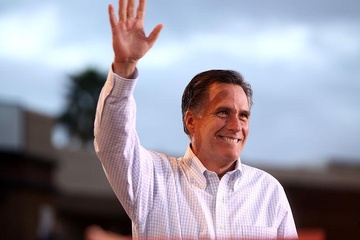Harvard Business School professor Clayton M. Christensen met Republican Presidential candidate Mitt Romney at Brigham Young University more than 40 years ago. Both are Mormons and Harvard Business School alumni. FM sat down with Christensen last week to talk about his friend, the Business School, and the election.
FM: Governor Romney was part of the joint J.D./M.B.A. program when he was at Harvard. What element of this education do you think was the most significant for Romney?
CMC: The case method [at HBS], because it teaches you that asking the right questions is more important than getting the right answers—that's critical in solving big problems. Number two, learning how to teach and learn one from another is another thing that will be critical for him to do. And three, the confidence that he can think his way through a problem. I think those three he takes that way from HBS to the presidency.
FM: Do those skills apply in the same way to the presidency as they might to a career in business?
CMC: Absolutely. For example, when Mitt Romney left Bain to create Bain Capital, Bain the consulting firm almost fell apart. What had happened is that Mr. Bain himself and six of the partners decided they were going to sell out and the people who were responsible for putting that deal together put together a deal that essentially took all of the money from the remaining partners and gave it to the founding members, and the company was just falling apart. The only person that they could think of on either side of this debate, who they all trusted could reach a consensus, was Mitt Romney. He had to leave Bain Capital, come back to Bain, and essentially tell the partners who had founded the company that we're going to only pay you about a sixth of the deal that you originally orchestrated, because what you agreed upon makes no sense. And he had to get the people who were so mad at them to agree to stay on the team. Nobody in the world could have pulled that together but Mitt Romney. That was as difficult a problem as the leaders of the Palestinians and the Israelis. In a contrast, Obama has never had any experience pulling people together to agree on something that they disagree on He has no experience at that.
FM: Romney’s budget proposal has been the subject of much scrutiny by President Obama and the left. Are those criticisms fair?
CMC: I can tell you that neither of their proposals has any hope of ever having any impact on America. They truly will not have any impact because they truly don’t understand the real problem. The problem is that on both sides they employ economists and lawyers. And the economists and lawyers have no experience ever doing anything.
FM: If he were to win on Nov. 6 and become president of the United States, what part of the job do you think would be most difficult for Romney?
CMC: Pulling the Democrats and Republicans in Congress to think about things on the same page. I think he came out of here with a lot of confidence, maybe even too much confidence that he can solve difficult problems. So, rather than that he personally doesn't have it, I'd frame it more as there are some big problems.
FM: You've written a lot about Mormonism in the context of Romney's candidacy. How do you think Mormonism informs his character and his leadership style?
CMC: You don't really need to know much about the person unless you first try to understand the church...in the Mormon Church a ward is a congregation. [The Cambridge ward of the Mormon Church] had one of every conceivable type of human being in a typical Mormon ward, and so in every ward you will have three or for people who are wrestling with schizophrenia or bipolar disorder. We don’t have any professionals; we don't pay anybody to take care of people. We have to do it ourselves.
I remember when Mitt was our bishop, we had a family in our ward where the mother had schizophrenia and really, really suffered. They had three children under the age of eight. The father had multiple sclerosis and couldn’t get out of his wheel chair. Neither the father nor the mother had any relatives. And the congregation had to take care of this family. We literally had to take care of this family. And Mitt, responsible for it—he couldn’t have decided who to ask to do what to take care of all of these people unless he had been there in their home, wrestling as they're wrestling through these problems. Once he understood the problems, then he could leave and say, “Christensen, I want you to do this for them and I need you to do this for them and we need to give a check for these people to do that thing, and you need to get them a job.”
If you want to understand what it is to be a bishop in a Mormon church, you’ve got to go inside the ward and experience that. I’ve been a bishop, and I have my own job, and on top of that, to be a bishop was 30 hours extra every week helping all of these people. And if anybody thinks that Mitt Romney doesn’t understand how humanity lives, they have no idea how humanity lives.
FM: Why do you think that doesn't come up often on the campaign trail?
CMC: He's a very private guy. And everybody in the ward can give you extraordinary experiences about Mitt personally coming to their home to help them in their time of need, but he just doesn’t talk about it.
FM: Election day is now a little less than two weeks away. What's your personal feelings about this election?
CMC: I'm just very frustrated with the whole process. There's a piece of my research about the job to be done. Essentially, what we're trying to say to the world is that if you decide that markets are segmented by demographics, the only way you will get the business of customers inside every demographic is if you make a product that does everything for everybody….
So when the pollsters tell Romney, “You're about 20 points behind in women, age 35 to 50, what are you going to do?,” it's such a stupid way to categorize the world. The only way that you can get that group of people is if you offer everybody everything. The way Obama responds to that is to offer even more to everybody. It's the craziest institution I can conceive of, but it causes the election to become filled with lies, recrimination, and falsehood. It's tough to see Mitt get pulled through all of that because he's smarter than that.





